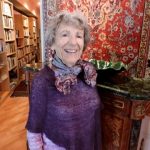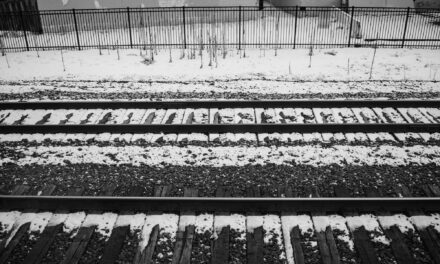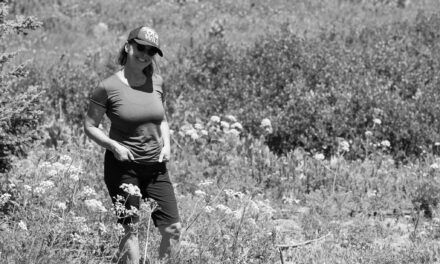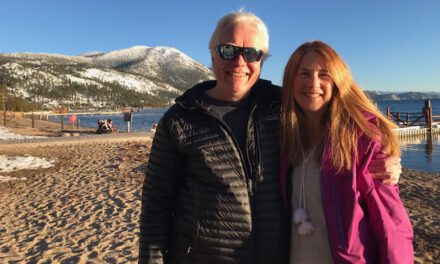It is 2020 now as I look back some seventy odd years later, stunned at a time so changed.
“Will you vote Labour this time, Eric?”
No, he would not. He had always voted Tory. Attlee had taken Labour into the war in 1940. The Tories had saved Britain.
This conversation took place after the war, in London, before I, his only daughter was to go into a 27-hour labor in Manhattan, in 1948, also after the war. My physician had been a medical student with Eric in the 1920’s, in Germany, before both men became refugees of the Hitler regime. One went to England, the other to the U.S. My father had made the connection for me. It was to remain a valuable relationship all through my New York life.
It is 2020 now as I look back some seventy odd years later, stunned at a time so changed.
In 1948 I spent ten days in the hospital giving birth that first time and then resting from my labors. I was provided a case of beer the day after the birth so that my milk would flow easily. I had gained forty pounds during my pregnancy loving every moment of eating and drinking to my satisfaction. I received guests who came by frequently bringing flowers, chocolates and the latest novels. I was treated with reverence and care like a guest in a four-star hotel.
Flowers on my meal tray, the staff greeting me with Mazel Tov. When I asked the nurse what that meant, she replied, “I don’t know, but that is what they say around here.” It was years later that someone told me it was a message of congratulations. I had never heard these words but of course, my Jewish immigrant refugee doctor was connected to Beth David hospital in Manhattan. I was brought up in a secular house.
When I finally came home to our apartment, the first diaper service had arrived. Dinner was delivered at six in the evening, a baby present to last ten days, offered by my new in-laws.
My father, still living in London, died the week in which Jill was born but not before he had written to his grandchild, welcoming her into the world and celebrating her birth. His death became associated with her birth for me. I saved his letter and gave it to her on her tenth birthday. A new generation to replace the one leaving.Both my parents had died young and Jill was not to have maternal grandparents. My paternal grandmother died a month before my birth, and I was given her name for my middle name. In response Jill offered to name her first child after that now dead grandfather.
His name was Eric. Jill named her daughter Heather. Many years later it was pointed out to me that Erica is the botanical name for Heather.
I must move on. The subject is labor and the change of mores over time.
Sally, my second daughter, two and a half years later, was born in the college town where her father taught at the local college and I had been a student. I walked the halls of the hospital for many hours with my old college history professor, trying to get the ball rolling. I had been told that this process would be without pain medicine. Because I had a bad cold, it became urgent for me to help push out the baby.
The setting was a sort of Show and Tell with four male medical students and their professor explaining every step of the way. I had a camera suspended over my head to view what was happening between my legs, accompanied by a detailed lecture from the teacher, my gynecologist.
My pain threshold is low, I was once told while undergoing surgery, and I did my share of yelling while Jean paced the hall, waiting. I nursed Sally, but I turned out to have a breast abscess and needed to stop after the first three days.
That was hard, but we bought a kit to make a formula and Sally spent weeks on her belly on my belly in intimate contact to assure her I was still there. A week or two later when the doorbell rang one evening, Jill went to answer, “where is your mother, my dear?” she was asked. Jill replied, “She is upstairs. The new baby is eating my mother.”
That seemed about right.
Jill was born in mid-April so my wardrobe for the last third of the pregnancy was a grey wool skirt with a semi-circle cut out large enough to give room for the baby. The skirt was covered by a grey wool loose jacket, buttoned to hide all, as was the custom. Sally came out of her covers in September after a most comfortable three months in a tent-like Marimekko dress of mine. Her summer was otherwise spent in in a hole I dug out on a sandy beach to give her space where I could lie and watch Jill and read comfortably.
Liz, on the other hand, was born on January the first human arrival on an icy night in Princeton, N.J. This was another work site for her father who was busily rewriting his PhD dissertation at Columbia. While we waited for that to happen, we lived in a rented house with coal furnace in a place where we had access to help thanks to Bob’s family’s servants.
The doctor for this birth was a clarinetist when not delivering babies and made records under the label “Hot Lips Pollard,” which always made me slightly sick when I thought of it.
Yes, she did make it. She was the first child of the New Year BUT with a caveat – she was only a girl. The Princeton paper announced it that way and gave a present to the parents of the first boy. We only got some lotions and soaps in honor of this achievement. My nurses had screamed at me, “Push, Mrs. Preyer, Push.” We’ve got to beat Trenton. Bob was at a party when I tried to tell him the good news.
This is where my story of my labors comes full circle. The woman who asked my father how he would vote, his second wife, Elisabeth, had come to help us for this third delivery.
After my father’s death, she remarried and moved to the States. I had no family to take my place while I was recuperating in the hospital for ten days with two small children at home and the famous coal furnace needing feeding every six hours. My father’s widow was a psychiatrist with live-in help. She had probably never washed a dish. My gratitude was immense, her generosity was without limits; I wanted to express my thanks by naming this new baby after her.
My dictionary defines labor: (Br.labour) as work, especially hard physical work, the process of childbirth, to work hard, to try hard to do something in the face of difficulty.
It seems an appropriate title for this reminiscence.
Renée Levine is 95 and lives at the Crossings, a senior community. She has offered to write letters about her life and the things she thinks about. If you have a message you would like to send her, please either email me at robin@ourstoriestoday.com or leave a comment below and I’ll be sure she receives it.





